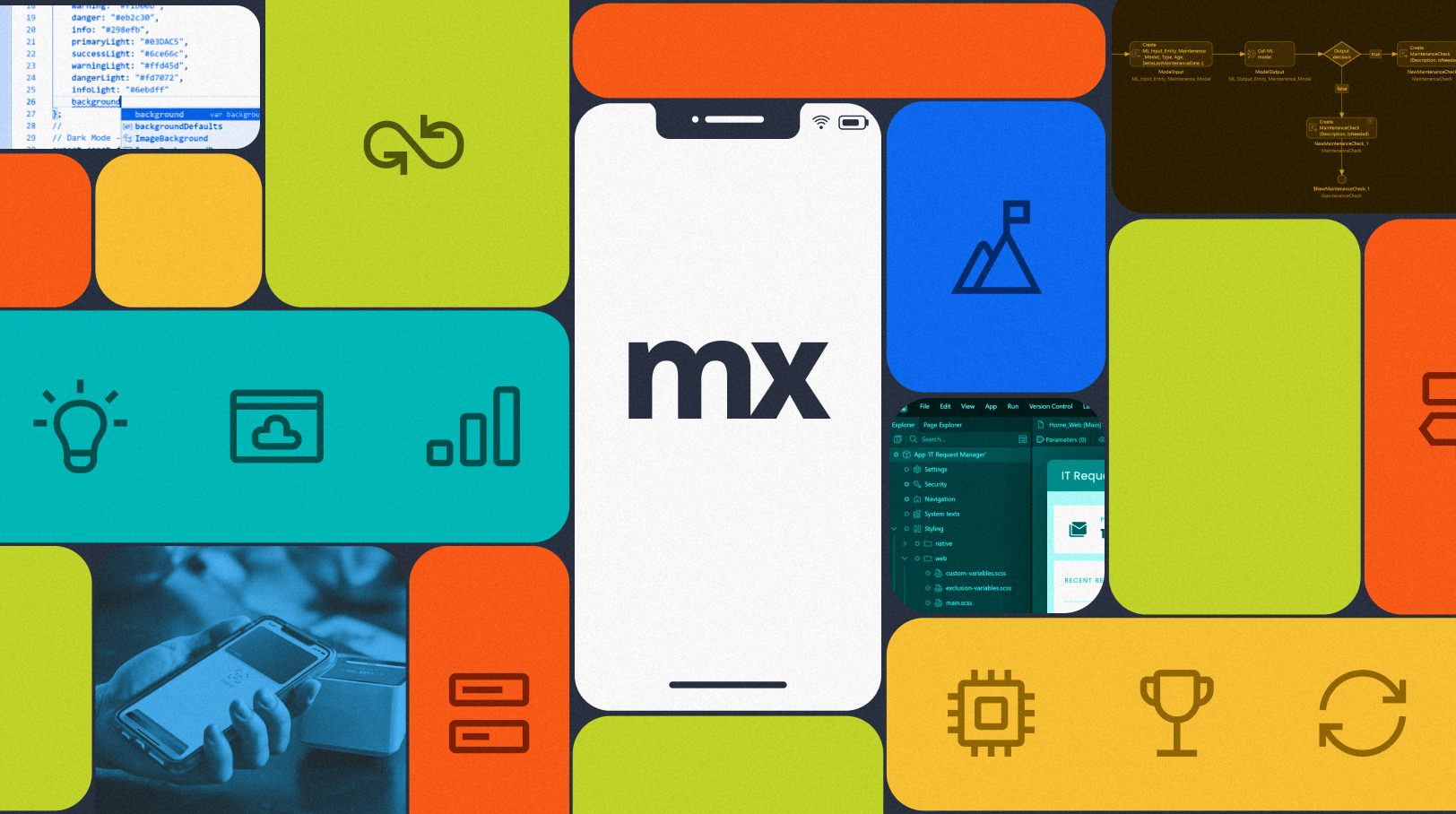The right mobile technology for the right use case
With our broad range of mobile options, from Native iOS and Android apps to progressive web apps (PWAs) to responsive web, we empower our customers to choose the best mobile architecture for their projects to deliver consistent, secure, and dynamic mobile experiences.
The ability to innovate and deploy native mobile and progressive web apps swiftly has never been more attainable and we’re excited to continue pushing the boundaries of what’s possible with Mendix mobile.
When choosing a mobile architecture, it’s essential to select the right solution for each mobile use case rather than defaulting to familiar options. The capabilities and advantages of PWAs continue to grow. Often, there’s a misconception that only native mobile apps can deliver key mobile features like offline access, push notifications, or location services. However, PWAs have evolved significantly over the years and can provide a robust, feature-rich user experience using the mobile browser.
We highly recommend investigating PWAs for any mobile use case you instinctively believe must be native mobile. PWAs are easier to build than native mobile apps and offer 1-click deployments while achieving many popular mobile features that were once thought only possible with a native mobile app.
While native mobile apps certainly deliver the best mobile experience, most device integrations, and strongest security, they do require more effort to build and deploy. Ultimately choosing which mobile architecture fits you best depends on your use case and the skills of your developers. We have updated our documentation to give better recommendations on which technology to choose for your app.
Planned improvements for PWAs
To continue pushing the boundaries for PWA, we are strengthening our PWA support with more native-like capabilities. Additionally, we are achieving PWA parity across iOS and Android platforms (offline, push notifications, etc.) for those customers seeking a native-like mobile experience without the necessity of an app store presence.
PWAs offer a seamless distribution process because they are web apps; they don’t require app building or app-store publishing. PWAs can be added to the home screen of your devices and run in full-screen mode, providing a full screen native app-like user experience.
New support policy for native mobile
In today’s fast-evolving native mobile landscape, staying up to date is crucial. Every year, Apple iOS and Google Android roll out significant updates that bolster security, introduce new features, boost performance, and elevate the overall user experience. As a best practice, updating native iOS and Android apps at least once a year will ensure they remain compatible and will avoid any disruptions.
To uphold this best practice, we are revising our support policy for native mobile apps. Beginning in 2025, specifically for native mobile, we will support:
- The latest Mendix minor version.
- Any MTS or LTS version with an initial release date no more than 1 year in the past.
In consequence, support for native mobile apps will be different than our usual MTS/LTS support. See our documentation to learn more about Mendix minor, MTS, and LTS versions.
Example: When Mendix 11.6 (MTS) is released in December 2025, native mobile will remain supported in Mendix 10.24 whereas 10.18 will be dropped.
To allow for a graceful transition to this new support policy, we will also extend support for Mendix 9 LTS and all Mendix 10 MTS versions until the end of August 2025.
We recommend that customers building native mobile apps migrate to the latest MTS or LTS version within three months of its release. We understand that this is a significant change, but we’re excited to be able to best support native mobile’s rapid advancements in technology.
AppCenter Replacement
Because building and deploying native mobile apps for release on the PlayStore or the AppStore can be a complex process, we integrated Microsoft AppCenter as a continuous integration and delivery (CI/CD) platform to automate and simplify the build process for both iOS and Android. Last year, Microsoft announced they will be retiring AppCenter in March 2025. Since the announcement, we have been working diligently behind the scenes to enable not only one but multiple CI/CD alternatives.
In December 2024, we have released documentation on how to build Mendix native mobile apps with Bitrise, a popular CI/CD service specialized on mobile app building. For customers seeking a direct replacement for AppCenter, we recommend using Bitrise, as it also offers a generous free tier and is simple to use due to its support for automatic signing on iOS. We plan to provide additional guides for other popular CI/CD services including GitHub Actions and Azure Pipelines.
Native mobile development in air-gapped environments including Mendix Private Platform
Developing native mobile apps typically requires internet access, posing challenges for air-gapped customers. Because of this, native mobile app development is currently disabled for those using the Private Mendix Platform (PMP).
We are committed to making native mobile accessible to all our customers. To support this, we will provide comprehensive guides and best practices to help air-gapped customers successfully build native mobile apps. Looking ahead, we will make MTS versions available in the Private Mendix Platform and lift all restrictions on native mobile development and building for PMP customers.

